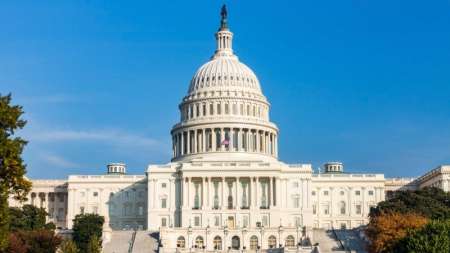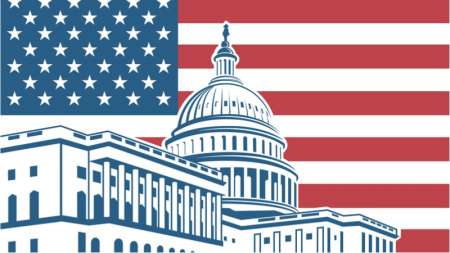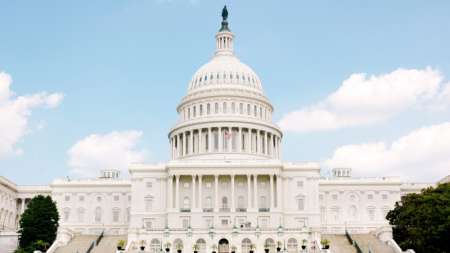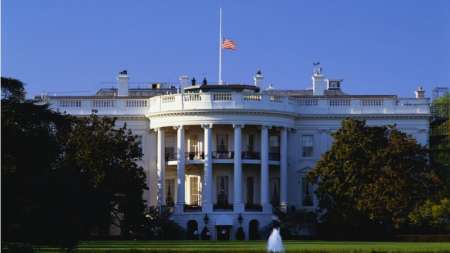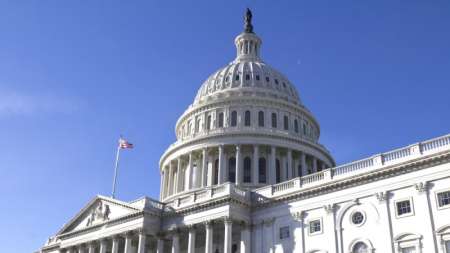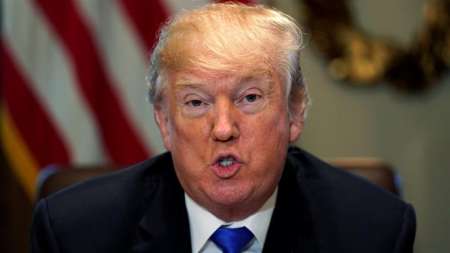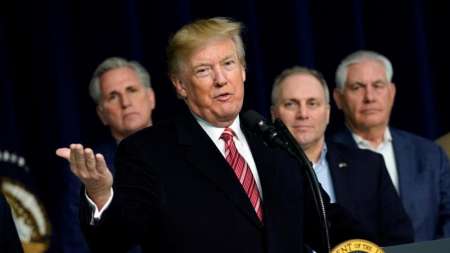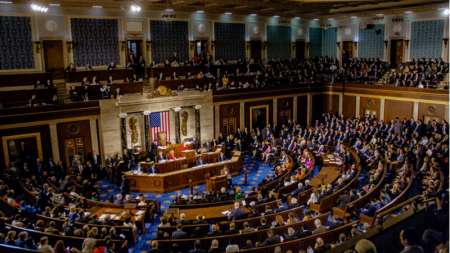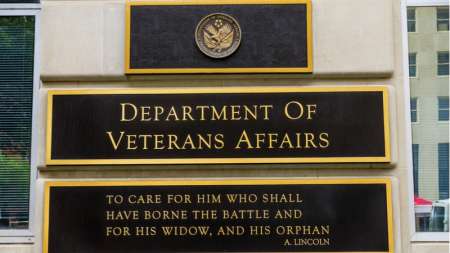President Trump held off today on his threat to declare a national emergency to get border wall funding, and the House of Representatives passed another separate funding bill to reopen the Department of Interior, Environmental Protection Agency, and the Forest Service, with little chance that measure will receive Senate or White House approval. […]
Democrats in both the House and the Senate have introduced a bill to prohibit landlords and creditors from taking action against employees at Federal agencies impacted by the partial government shutdown. […]
The bipartisan Federal CIO Authorization Act, sponsored by Reps. Robin Kelly, D-Ill., and Will Hurd, R-Texas, will likely be shelved until after the partial Federal government shutdown ends. […]
President Trump said today that he was getting closer to calling a national emergency in order to get a wall built on the southern U.S. border, while at the same time the Democratic-led House continued to pass separate spending bills that would re-open Federal agencies, but which have little chance of passing in the GOP-led Senate. […]
Several key Senate and House technology and telecom leadership positions were announced on Wednesday. […]
Rep. Robin Kelly, D-Ill., announced today that she will serve on the House Committee on Energy and Commerce. […]
Artificial intelligence is key to the future of the American economy, and investments need to be made now to ensure that the workforce is prepared, said members of Congress during a panel at a Washington Post Live event on Thursday. […]
Rep. Virginia Foxx, R-N.C., has reintroduced legislation that that would create and impose data standards for information that recipients of Federal grants and cooperative agreements must report to the Federal government. […]
Congressman Doug Collins, R-Ga., is expected to introduce legislation that will require FCC Connect America Fund (CAF) broadband subsidy recipients to provide additional information about their internet speed and latency testing. […]
Wednesday negotiations to end the partial government shutdown ended abruptly, with President Donald Trump leaving the room. […]
Sens. Ron Wyden, D-Ore., Kamala Harris, D-Calif., and Mark Warner, D-Va., along with FCC Commissioner Jessica Rosenworcel voiced strong opposition Tuesday and Wednesday to the reported sale of user location data by telecom service providers including Sprint, T-Mobile, and AT&T. […]
Rep. Robin Kelly, D-Ill., alleged in a statement today that the shutdown is preventing the Federal government from attracting top IT talent. […]
Sen. Roger Wicker, R-Ala., the new chairman of the Senate Committee on Commerce, Science, and Transportation, is pushing for a hearing on 5G wireless deployment and said the STREAMLINE Small Cell Deployment Act could be a good jumping off point for the hearing, according to a Politico report. […]
President Donald Trump will address the nation from the Oval Office tonight at 9:00 p.m. EST regarding his demands for Congress to include $5.7 billion in funding for a border wall on the Southern U.S. border. […]
The Wireless Infrastructure Association has hired Kate Forscey as its new director of legislative affairs. Formerly, Forscey was a legislative aide to Rep. Anna Eshoo, D-Calif. […]
Members of Congress in both the House and the Senate announced their plans on Tuesday to introduce bills to secure back pay for low-wage Federal contract workers. […]
As the partial Federal government shutdown continues with little sign of compromise over President Trump’s demand for border wall funding, the idea of employing more technology to create better border security has crept into greater prominence in discussions of the issue. […]
As the partial government shutdown churned through its seventeenth day, both sides remained far apart in negotiations to provide funding for full government operations, with money for a wall on the U.S.-Mexico border continuing as the major snag. […]
Mike Flynn has joined the Senate Homeland Security and Governmental Affairs Committee staff, according to a Politico report. […]
Sarah Moxley is the new Republican staff director for the House Homeland Security Committee’s Subcommittee on Cybersecurity and Infrastructure Protection. […]
House Speaker Nancy Pelosi, D-Calif., has nominated Rep. Zoe Lofgren, D-Calif., an election security advocate, to head the House Administration Committee, setting the stage for Lofgren to oversee legislative branch agencies and their activities. […]
The FBI is investigating fraudulent text messages impersonating Vice President Mike Pence’s press secretary, according to press reports. […]
The partial Federal government shutdown is expected to continue into the weekend and likely beyond as both Democrats and Republicans remained far apart in negotiations on a new spending bill after meeting today but achieving no discernible progress. […]
H.R. 1, the For The People Act introduced in the House yesterday, includes new restrictions for Federal employees on participating in work related to their former private sector employers, and stronger restrictions on government personnel leaving for private sector employment. […]
On Thursday, President Trump signed the Forever GI Bill Housing Payment Fulfillment Act into law, speeding up IT modernization efforts at the Department of Veterans Affairs (VA). […]
Whether the Technology Modernization Fund (TMF) will receive any funding for fiscal year 2019 remained an open question late Thursday as the House voted to approve a full-year FY 2019 appropriations bill that includes no funding for TMF. […]
On their second day in charge of the House, Democrats debuted H.R. 1, the For The People Act, which features a wide range of election security and modernization measures, including cybersecurity standards for voting machines, an election security bug bounty program, and a requirement for online voter registration. […]
The House Rural Broadband Caucus announced Thursday that Rep. Rob Wittman, R-Va., will serve as co-chair of the Caucus. […]
Reps. Robin Kelly, D-Ill., and Will Hurd, R-Texas reintroduced today their Federal CIO Authorization Act, which is intended to elevate and reauthorize the role of the Federal CIO. A previous version of the legislation passed unanimously out of the House on Nov. 30, 2018. […]
Asad Ramzanali is now a senior technology policy adviser to Rep. Anna Eshoo, D-Calif. Previously, Ramzanali served as a legislative fellow specializing in banking and technology policy for Sen. Brian Schatz, D-Hawaii. […]


